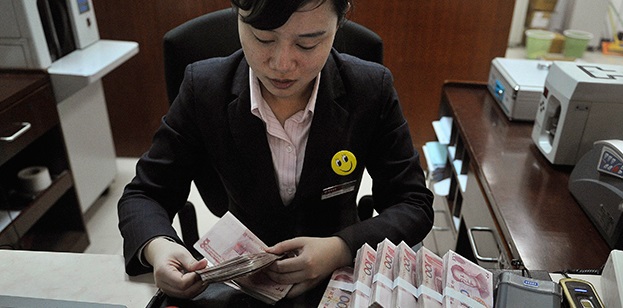Widespread Condemnation of Decision over China Bank

A number of leaders, including former prime minister Paul Keating, Australia’s former ambassador to China, AIIA National President John McCarthy and the nation’s main business newspaper, The Australian Financial Review, have all attacked the decision not to become a charter member of China’s Infrastructure Investment Bank, launched in Beijing at the end of last month.
The prime minister announced his decision after intense lobbying from Washington, including calls to the foreign minister, Julie Bishop, from US secretary of state John Kerry. Washington believes the bank will enhance Chinese influence in the Asia-Pacific.
The decision came as trade minister, Andrew Robb, hopes to finalise a free trade agreement with China in time for the G-20 leader’s summit in Brisbane next week. Mr Robb, along with the treasurer, Joe Hockey, were Cabinet members supporting Australia’s participation in the bank.
The issue became live at the AIIA’s National Conference on Australia’s foreign policy in Canberra last month, when Mr McCarthy and Michael Stutchbury, editor-in-chief of The Australian Financial Review said it sent the wrong signals on the nation’s relationship with the United States and the Asian region. Australia had been expected to attend the opening ceremony, but was not among the 21 charter members, including India, Singapore, Malaysia, Thailand, the Philippines, Pakistan, Bangladesh and others. Indonesia later indicated it would join.
In an interview on Monday with ABC’s PM, Mr McCarthy said the Government was “putting the overtures of the United States ahead of Australian national interests in Asia”.
At the AIIA National Conference, Mr McCarthy had described Australia as becoming a ‘satrap’ of the United States. Asked by Mark Colvin to explain the use of this word, he replied, “It essentially means a dominion at the far-flung edges of an empire which follows the instructions of the empire.” He added,”What I am seeking to suggest is there needs to be a greater degree of equilibrium between the way we regard our priorities in Asia and our relationship with the United States. It is now falling out of equilibrium, and has been falling out of equilibrium for the last decade or so.” Full interview here.
Mr Keating, interviewed by Mr Stutchbury, said by failing to accept the invitation to become a charter member of the bank, the Government had made “its worst policy decision since taking office”. He said it had provided a “unique chance to influence the way China behaved that would only rarely come Australia’s way”. Mr Keating said he understood the bank was the personal initiative of President Xi Jinping, something Mr Hockey has also previously confirmed before the split in the government fully emerged last week.
Washington’s interference in Australia’s decisions – as distinct from defence issues covered by the ANZUS treaty – was one of three fault lines in Australia’s foreign policy I defined in the Hedley Bull lecture at the University of Sydney. I said it was a further sign that Australia had moved away from its enthusiastic involvement in Asia in the Hawke-Keating years when Gareth Evans was foreign minister, and Australia was respected in the region”.
Colin Chapman is immediate past president of AIIA NSW.


